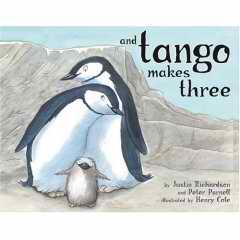| 31st December | | |
Sex offenders registration extended to adult obscenity
| From AVN
|
In Ohio, starting on January 2, a conviction for pandering obscenity is a registratable offense, stated prominent First Amendment attorney H. Louis Sirkin: It's a result of the Adam Walsh Act. In Ohio, they've made pandering obscenity a 15-year
registratable offense.
The maximum sentence in Ohio for having been convicted of one count of "pandering obscenity" – that is, creating, advertising, selling, renting, delivering or displaying an obscene work within the state – is
12 months in prison. There's just one problem: The Adam Walsh Act has expanded the definition of "sex offense" to mean a criminal offense that has an element involving a sexual act or sexual contact with another.
Censorious
officials in Ohio (and likely soon elsewhere) have taken the position that an obscenity bust is a criminal offense that has an element involving a sexual act, even if that act is only on videotape, DVD or VOD, and the Office of the Ohio Public
Defender warns that under the Ohio Revised Code, "pandering obscenity" will become a "Tier 1" offense requiring registration under Ohio's Sex Offender and Registration Notification (SORN) Act.
As a Tier 1 sexual offender, the
Ohio Public Defender's Office states that registration duties last 15 years for adults, 10 years for juveniles.
The irony (and injudiciousness) of being forced to spend 15 years on the Sex Offender Registry for having committed an offense
that can garner an adult retailer less than one year in jail is not lost on Sirkin.
Aside from the reporting requirements, one of the biggest problems with being compelled to register as a sex offender is residency.
Why someone convicted
of selling a non-child-porn obscene DVD should be forced to live at least 1,000 feet from where children go to school or day-care is unclear, and the law itself provides no rationale for it. The local sheriff is required to send notice of a registrant's
address to all apartment house managers and condo owners association within 1,000 feet of that address, to any school principal, day-care center administrator and youth organization leader within the county, and to any resident who shares a common
hallway with the registrant.
At this time, Ohio is the only state that AVN has been able to determine has enacted such a law, but all states must do so by July 27, 2009 or risk losing 10% of their federal law enforcement grant funds.
I
think it's a serious concern and we need to get proactive about it, Sirkin warned.
|
| 27th December | |
| Presidential candidates on video game violence
| From Wired see
full article
|
Five candidates for the position of America's 44th president, including Barack Obama, Hillary Clinton and Mitt Romney, were recently quizzed on their feelings regarding violent gaming legislation.
Specifically, the candidates were asked: To
date, nearly 10 states have considered legislation to keep violent video games out of kids' hands. Would you support this type of legislation at the federal level? What other strategies would you support to keep the video game industry and other media
companies from marketing and selling inappropriate content to children?
Hillary Clinton cited her Family Entertainment Protection Act which would punish retailers with, a fine of $1,000 or 100 hours of community service for the first
offense and $5,000 or 500 hours of community service for each subsequent offense.
John Edwards stated that while parents must ultimately decide what games their kids play, he thoroughly supports the efforts of industry associations such as
the ESRB saying, The Entertainment Software Rating Board is a good example of industry responsibility.
Similarly, media-darling Barack Obama stated that parents must be the driving force behind what children see, but that it's up to the
government and gaming industry to provide comprehensive tools to aid parents.
Bill Richardson's concurred with Edwards and Obama
On the other side of the aisle, Republican Mitt Romney feels that the true issue here is a lack of morality
in society. His stated goal is, to restore values so children are protected from a societal cesspool of filth, pornography, violence, sex, and perversion.
The most striking thing about the entire Q&A is the similarity presented by each
candidate. Even across party lines, the similarities presented in each candidate's arguments seem almost rehearsed.
|
| 26th December | | |
Mortal Kombat in the frame
| From Game Politics see full article |
In what is likely to become a black eye for the video game industry, a pair of Colorado teenagers face murder charges following the tragic death of a 7-year-old girl.
Lamar Roberts, 17, and Heather Trujillo, 16, told police they were
babysitting Heather's sister, Zoe Garcia earlier this month. According to the Rocky Mountain News, the three began acting out a version of Mortal Kombat.
Roberts, apparently drunk, kicked the litte girl. Heather Trujillo told police she punched [Zoe] in the stomach, karate chopped her lower arms, punched and pinched the victim's thighs, kicked her in the shins, slapped her stomach and buttocks and poked at the victim's chest.
Update: Sentenced 6th July 2008 As reported by Colorado's 9news, Trujillo has received an 18-year sentence which will be
suspended if she successfully completes six years in a program for young offenders. She must also testify against Roberts at his upcoming trial.
Game Politics commented: This case is a terrible tragedy. But beyond that it demonstrates
the media's focus on the sensational - and perhaps untrue - Mortal Kombat aspect. What has not received nearly as much coverage is that this was a completely dysfunctional family situation, one that was well known to family service authorities in at
least two states.
|
| 20th December | | |
Poster showing hooded man led by soldiers banned
| From the KLTV see
full article
|
ThinkFilm is preparing an appeal to the MPAA about a poster. The poster art for Taxi to the Dark Side , a documentary about the pattern of torture practice, is causing a stir due to its depiction of a hooded man being led by American soldiers.
Variety is reporting that the MPAA has officially rejected the poster, and if ThinkFilm goes forward with the marketing, they could have their "R" rating revoked. Taxi to the Dark Side is due for US release on January 11th.
An MPAA spokesman says Ads will be seen by all audiences, including children. If the advertising is not suitable for all audiences it will not be approved by the advertising administration. Alex Gibney, the film's writer, producer, and
director says, Not permitting us to use an image of a hooded man that comes from a documentary photograph is censorship, pure and simple. Intentional or not, the MPAA's disapproval of the poster is a political act, undermining legitimate criticism of
the Bush administration. I agree that the image is offensive; it's also real.
|
| 20th December | | |
Breastfeeding picture banned in art show
| From the KLTV see
full article
|
A Lubbock city official has banned two drawings from an art show in a city-run facility.
The predominantly pencil-sketched images of a nearly fully clothed mother who is breast-feeding and a nude pregnant woman were banned from the Buddy Holly
Center.
Vince Gonzales, president of the Lubbock chapter of the American Civil Liberties Union said that a “nurse-in,” a gathering of nursing mothers at a public place, is being planned for a date in the near future “mostly as a way of
supporting Lahib Jaddo and her artwork: I think it also is a response to how breast-feeding mothers are treated in Lubbock. They have to put up with thinly veiled comments from people seated at the next table at a restaurant, and rude and
inappropriate remarks from people walking by them at the mall. Update: Still Censored 16th January 2009 More than a year after two sketches by Lahib
Jaddo were banned at the Buddy Holly Center in Lubbock, the artist still has not seen her works grace the walls of a city-governed gallery.
And she may not, even though she has an exhibit on the center's calendar for December.
|
| 19th December | | |
| Judge dismisses case blaming GTA Vice City for murder
| From Game Politics see full article
|
GamePolitics has learned that a New Mexico judge today dismissed Jack Thompson's wrongful death suit against Take Two Interactive and Sony.
The case, filed in 2006 by Thompson and a New Mexico attorney, claimed that Grand Theft Auto Vice
City played a role in 14-year-old Cody Posey's 2004 murder of his father, stepmother and stepsister.
In disposing of the case, Judge Huling ruled that the Court did not have jurisdiction over Take Two and Sony, since neither corporation has
offices in New Mexico. Judge Huling also ruled that New Mexico laws did not support Thompson's wrongful death claim in the case.
|
| 19th December | | |
MTV and Letterman silence MIA's best shot
| From nine msn see full article
|
British singer M.I.A. has let fly at MTV and David Letterman in a raging blog entry after they edited gunshot noises out of her new single Paper Planes .
The controversial singer-songwriter has achieved worldwide success with her album
Kala , and recently visited New York to perform on Late Night With David Letterman.
In a lengthy blog entry littered with spelling mistakes and written in all capital letters, M.I.A. described her fury when she realised her performance was
being censored on the talk show. Paper Planes is the latest single off Kala and its hook features the line "all I want to do is", followed by several gunshot noises and the "cha-ching" of a cash register.
While
no official statement regarding Letterman's gunshot chop has been released, online message boards have been debating the reason for the edit.
M.I.A.'s blog entry also attacked MTV, after the music channel — notorious for bleeping out anything to
do with firearms — made a similar edit to the video version of Paper Planes .
|
| 12th December | | |
Ratings should describe rather than proscribe
| From Game Politics see full article
See report Politically
Determined Ratings and How to Avoid Them [pdf] |
The Competitive Enterprise Institute, a US think tank with a free market orientation, has issued a detailed position paper on media content ratings, including those of the ESRB.
Authored by Cord Blomquist and Eli Lehrer, Politically Determined
Ratings and How to Avoid Them holds that the ESRB system, while complex, works better than most other rating schemes for media content. Ratings systems alone, however, cannot, over the long haul, influence the type of content produced.
From the
report: The best rating systems have three attributes: They attempt to describe, rather than prescribe, what entertainment media should contain; they are particularly suited to their particular media forms; and
they were created with little or no direct input from government.
The [ESRB] system for evaluating computer games works better than most… Parents can tell, at a glance, exactly what they might find objectionable… Congress has held hearings on the
video game industry and threatened to regulate content, but the system emerged almost entirely as a result of voluntary private action, and has worked well…
The authors also conclude that politics and media content ratings are
a bad mix: The best ratings systems have evolved in response to market forces. The First Amendment, correctly we believe, has long been interpreted to limit political control over entertainment media, anyway.
Ratings systems that avoid government involvement will do a better job giving people the information they need.
|
| 12th December | | |
Arty farty trumps anti-porn zoning law
| From X Biz see
full article
|
Albuquerque's Guild Cinema's independent erotic film festival will not be fined for showing pornographic movies despite its violation of local zoning statutes, partially due to help from the American Civil Liberties Union and 1st Amendment arguments.
Late last week, city authorities threatened to fine the theater for every pornographic movie it showed as part of the festival, but representatives of the American Civil Liberties Union got involved on 1st Amendment grounds.
Molly Adler,
co-owner of adult store Self Serve and one of the festival's organizers, said attendance was high all weekend, perhaps because of the publicity. She said the show of support drowned out the small number of complaints from neighbors.
The theater
will receive a notice of violation, Albuquerque City Attorney Bob White said, but there will be no penalties. The city also is seeking a meeting with the Guild to avoid further problems.
Guild co-owner Peter Conheim told reporters that he was
looking forward to meeting with city officials: My hope is that when we have this meeting ... we will be able to be granted a variance to do this kind of program, without a hassle, on an extremely rare basis. I hope it would mean we could work on the
language of the zoning code so it takes more accurately into account art.
|
| 11th December | | |
YouTube ban breastfeeding video
| From seattlepi.com see
full article
|
The great breast-feeding debate raged after YouTube removed a breast-feeding video.
YouTube is the latest new media site to ban nursing images, following actions at MySpace and Facebook, according to the League of Maternal Justice. Bill Maher
stoked the breast-feeding fire when he compared public nursing to masturbation earlier this year.
The folks at the League of Maternal Justice weren't totally surprised that YouTube banned the clip, which was viewed at least 68,000 times before
disappearing, but they were upset.
The league asked why YouTube didn't just flag the video as explicit. YouTube stated is doesn't comment on specific videos.
|
| 9th December | |
| National Institute on Media and the Family have their say
| From 1 Up see
full article
See also Video Games Report Card
|
For several years, now the National Institute on Media and the Family has published their annual Video Games Report Card, a sort of "state of the union" address, whose purpose is to rate the various social and political agencies in the
gaming world on their overall success in keeping the industry a socially progressive and "well adjusted" environment.
As you might expect, the NIMF places great emphasis on issues which relate directly to the issues surrounding gaming
and children, like the violent content debate and parental/retailer responsibilities relating to it. Last year, the gaming industry did pretty well for itself, with big retailers and console manufacturers netting high praise for their efforts in
promoting ratings awareness and parental controls in consoles.
In 2008 however, the NIMF's tone has turned decidedly icy towards the industry. "Complacency," reads the report's introduction, especially on the part of retailers and
parents, appears to have caused a backslide in ratings awareness and enforcement. At the same time ... several shocking incidents have inadvertently revealed dangerous loopholes in the [ESRB's] ratings process. Simply put, some of the hard-won progress
seen in previous years has been lost, and now, too many children are spending too much time playing inappropriate video games that can harm their health and development.
Central to the NIMF's annoyances is the fact parents seem to be telling
lies about their own awareness of the ratings system. While more than 50% of adults interviewed were eager to claim awareness of the game ratings system, more than 70% could not actually identify or define what simple terms such as "Rated M" or
"AO" meant.
Additionally, the NIMF is still upset more parents are not actively playing games with their children. 38% of moms and 31% of dads take no interest in what games junior has on the go, a situation which has apparently
resulted in widespread instances of "M rated" content in the hands of the young'uns. More than 50% of 8-12 year olds for example admit to playing something inappropriate when mom and dad aren't watching. Maybe that's why instances of games
causing family friction and infighting is discussed at length in the NIMF's report.
Of course, the Institute is also happy to point the finger at retailers for this occurrence, citing that kids are still able to buy M-Rated material at stores
roughly 50% of the time. A select few retailers (Kmart, Hollywood Video and EB Games) managed to dodge the bullet of blame, with a startling 100% compliance figure in the NIMF's enforcement survey. The report accuses the industry of continuing to
dredge the well of poor taste through its promotional and marketing efforts, citing examples like the blood-spatterd Manhunt 2 Wii giveaway and the recent Kane and Lynch: Dead Men Playboy ad campaign, which featured prominently over
MySpace. The NIMF dubs these tactics creative new ways to market adult games to kids" and "disgustingly familiar practices in the report.
Interestingly the NIMF does not contain its ire uniquely to the games industry, lashing out
also at at religious institutions for the recent (and apparently bizarrely commonplace) trend of attracting youngsters to Sunday School with promises of Halo .
Perhaps the hardest hit party however in the 2008 survey was the ESRB, who took
it on the chin multiple times in the report for what is obviously perceived as a severe case of falling down on the job. The Manhunt 2 controversy in particular was not kind to the ratings agency, and the report is full of rebuke for the agency's
handling of the situation.
|
| 7th December | | |
US internet companies feel distinctly unsafe
| From CNET News see full article
|
The U.S. House of Representatives have overwhelmingly approved a bill saying that anyone offering an open Wi-Fi connection to the public must report illegal images including "obscene" cartoons and drawings--or face fines of up to $300,000.
That broad definition would cover individuals, coffee shops, libraries, hotels, and even some government agencies that provide Wi-Fi. It also sweeps in social-networking sites, domain name registrars, Internet service providers, and e-mail service
providers such as Hotmail and Gmail, and it may require that the complete contents of the user's account be retained for subsequent police inspection.
Before the House vote, which was a lopsided 409 to 2, Rep. Nick Lampson (D-Texas) held a press
conference on Capitol Hill with Ernie Allen, head of the National Center for Missing and Exploited Children.
Allen said the legislation, called the Securing Adolescents From Exploitation-Online Act, or SAFE Act, will ensure better reporting,
investigation, and prosecution of those who use the Internet to distribute images of illegal child pornography.
Wednesday's vote caught Internet companies by surprise: the Democratic leadership rushed the SAFE Act to the floor under a
procedure that's supposed to be reserved for noncontroversial legislation. It was introduced October 10, but has never received even one hearing or committee vote. In addition, the legislation approved this week has changed substantially since the
earlier version and was not available for public review.
This is what the SAFE Act requires: Anyone providing an "electronic communication service" or "remote computing service" to the public who learns about the transmission
or storage of information about certain illegal activities or an illegal image must: (a) register their name, mailing address, phone number, and fax number with the National Center for Missing and Exploited Children's
"CyberTipline"
(b) "make a report" to the CyberTipline that
(c) must include any information about the person or Internet address behind the suspect activity
(d) the illegal images themselves.
The
definition of which images qualify as illegal is expansive. It includes obvious child pornography, meaning photographs and videos of children being molested. But it also includes photographs of fully clothed minors in overly "lascivious" poses,
and certain obscene visual depictions including a "drawing, cartoon, sculpture, or painting." (Yes, that covers the subset of anime called hentai).
Someone providing a Wi-Fi connection probably won't have to worry about the SAFE Act's
additional requirement of retaining all the suspect's personal files if the illegal images are "commingled or interspersed" with other data. But that retention requirement does concern Internet service providers, which would be in a position to
comply. So would e-mail service providers, including both Web-based ones and companies that offer POP or IMAP services.
Failure to comply with the SAFE Act would result in an initial fine of up to $150,000, and fines of up to $300,000 for
subsequent offenses. That's the stick. There's a carrot as well: anyone who does comply is immune from civil lawsuits and criminal prosecutions.
The vote on the SAFE Act seems unusually rushed. It's not entirely clear that the House Democratic
leadership really meant this legislation to slap new restrictions on hundreds of thousands of Americans and small businesses who offer public wireless connections. But they'll nevertheless have to abide by the new rules if senators go along with this
idea (and it's been a popular one in the Senate).
|
| 6th December | |
| Selective findings support government regulation
| From Gamasutra see
full article |
Public relations and public affairs consultancy Hill & Knowlton has released the results of a survey, conducted online by Opinion Research Corporation It found that 60% of 1,147 adult U.S. consumers agree that
the government should regulate the sale of violent or mature content.
Additionally, a slight majority, or 51%, of respondents said that the government should be responsible for regulating the content itself, while 54% of those with children in
the home concurred that violent or mature content will affect a child's behavior.
As for current gamers surveyed, they split evenly on whether the government should regulate violent content specifically in games, with 44% agreeing it should and
47% responding it should not. Additionally, 55% of gamers also believe that the government should regulate only the sale of games with violent or mature content.
The Entertainment Software Association has responded vehemently to the newly
released Hill & Knowlton research on game regulation, revealing it was part of a proposal to the ESA and claiming that the "unprofessional and unethical" release only selectively quotes the full findings.
However
the Entertainment Software Association (ESA) has responded vehemently to the Hill & Knowlton research on game regulation, revealing it was part of a proposal to the ESA and claiming that the "unprofessional and unethical" release only
selectively quotes the full findings.
The official statement from the ESA on the announcement is as follows: Today, Hill & Knowlton released the findings of research it conducted on the American
public's views about the computer and video game industry. According to the agency's findings, a majority of respondents believe that the government should regulate the sale of mature content video games.
We understand that parents have concerns
about mature content getting into the hands of children and we are working to help make sure that does not happen. To achieve this important goal, the ESA strongly supports a variety of efforts aimed at educating parents and retailers and allowing them
to control mature content.
We support the ESRB, which is the nation's leading rating system working to educate and empower parents with game information. We have also worked within the industry to ensure that password protected, robust parental
controls are included in all new video game consoles sold. In addition, we work with retailers to encourage the enforcement of policies that prohibit the sale of mature games to minors.
The research released today was conducted by Hill &
Knowlton for a proposal the agency made to the ESA this summer, but only a portion of it was released publicly now. Hill & Knowlton's decision to release these findings was both unprofessional and unethical and its timing is questionable. The
research was done this summer and only performed in an effort to help Hill & Knowlton win our business.
In addition, the release of only part of the findings paints an inaccurate picture of the entertainment software industry. The other
research conducted by agency but not released showed:
- More than two-thirds of 18-34 year olds currently play video games
- Less than 1 in 5 Americans think playing video games is a negative way to spend time with friends and family
- More than half of families think that video games are a positive way to spend time together
- Educational video games are perceived to provide more learning than TV or DVDs.
|
|
|
 The curtain went down on Ronnie Larsen's play, Making Porn,
only shortly after it opened over the March 11 weekend at SPOT, 4146 Manchester Street.
The curtain went down on Ronnie Larsen's play, Making Porn,
only shortly after it opened over the March 11 weekend at SPOT, 4146 Manchester Street.  Ten years after Congress banned sales of sexually explicit material on military bases, the Pentagon is under fire
for continuing to sell adult fare, such as Penthouse and Playmates In Bed , that it doesn't consider explicit enough to pull from its stores.
Ten years after Congress banned sales of sexually explicit material on military bases, the Pentagon is under fire
for continuing to sell adult fare, such as Penthouse and Playmates In Bed , that it doesn't consider explicit enough to pull from its stores.  Jerry Yang, Yahoo's US boss, and Michael Callahan, the company's top lawyer, were lambasted as moral "pygmies" by a top House Bay Area Democrat
for the firm's role in helping China identify and jail a journalist in 2004.
Jerry Yang, Yahoo's US boss, and Michael Callahan, the company's top lawyer, were lambasted as moral "pygmies" by a top House Bay Area Democrat
for the firm's role in helping China identify and jail a journalist in 2004. 
 After just five hours of
deliberation, a jury composed of eight women and four men announced that they had determined that Five Star Video LC and Five Star Video Outlet LC were guilty of obscenity charges for having shipped JM Productions’ Gag Factor 18 to an undercover
FBI agent in Falls Church, Virginia.
After just five hours of
deliberation, a jury composed of eight women and four men announced that they had determined that Five Star Video LC and Five Star Video Outlet LC were guilty of obscenity charges for having shipped JM Productions’ Gag Factor 18 to an undercover
FBI agent in Falls Church, Virginia.  Congress has moved a step closer to enacting a new law regulating key aspects of how American tech companies operate in countries whose
governments censor or otherwise manipulate the Internet.
Congress has moved a step closer to enacting a new law regulating key aspects of how American tech companies operate in countries whose
governments censor or otherwise manipulate the Internet. 

 Civil case against hotel for not
blocking porn channels
Civil case against hotel for not
blocking porn channels 
